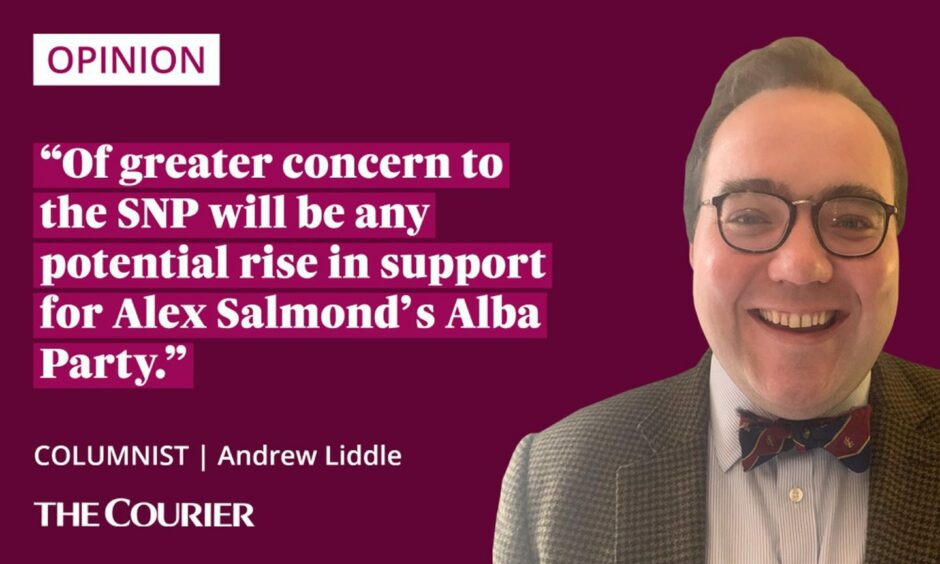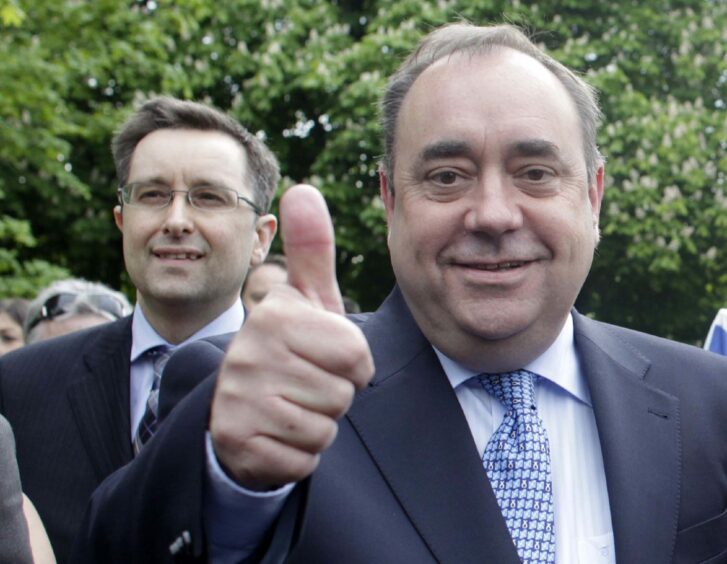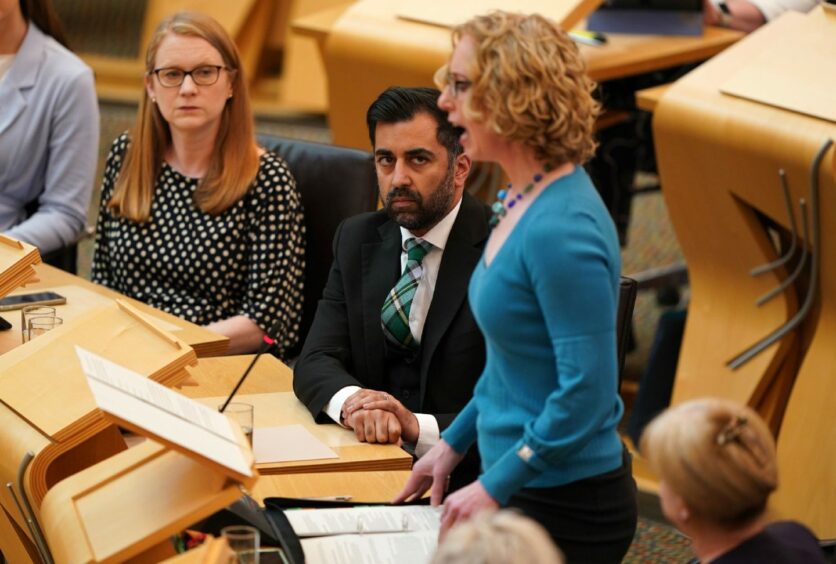Support for the SNP has always been synonymous with support for independence.
For decades, with separation only seriously pursued by quacks, eccentrics and outsiders, this was of little consequence.
But in recent years – with the national question at the fore – voters identifying with independence has been the source of the SNP’s electoral strength, its patent on power.
If you support the break-up of the UK – and sadly almost half of people in Scotland now do – there has simply been no viable alternative but to vote SNP.
Meanwhile, the pro-UK vote has been divided into two or sometimes three different camps.
In our largely first-past-the-post electoral system, this has given the SNP a huge advantage. But that could all be about to change.

Support for independence has, of course, barely moved an iota over the last decade.
Most polls, including those in recent months showing plummeting support for the SNP, still suggest somewhere between 45 to 50% of the population support separation.
This gives SNP strategists – not least my freshly departed Courier colleague Kevin Pringle – hope that the party can recover its dominant position.
After all, given about half the country still identifies with and supports the SNP’s core offer, why should they vote for anyone else?
But this hope – and, at this stage, it is nothing more than that – wilfully ignores another possibility.
Namely, that the SNP’s hold over the pro-independence vote is weakening and that the Nationalist movement could well fragment.
Salmond senses SNP support is weakening
There is already evidence that some pro-independence voters are considering voting for the Labour Party again.
But further damage to the SNP’s recovery can be inflicted by internecine competition among the pro-independence parties themselves.
The pro-independence Scottish Green Party has enjoyed a small bump in support in recent polls, despite its repeated and well-publicised failings in government.
But this is unlikely to bother SNP strategists, who after all are in an effective coalition with the Scottish Green Party and, in any case, know they only stand a handful of candidates in first-past-the-post contests.
Of greater concern to the SNP will be any potential rise in support for Alex Salmond’s Alba Party.
That the former First Minister scents blood is clear. He has become increasingly bold and outspoken following the demise of Nicola Sturgeon and the police investigation into the SNP’s finances, believing the party’s grip on the pro-independence vote is loosening as a result.
Whatever his other faults, Salmond is no fool and will know his party has no chance of usurping the SNP as the dominant party of the independence movement.
But that does not mean Alba’s impact will be negligible.
Support for Alba could hasten end of SNP dominance
Should it decide to stand candidates against the SNP in a first-past-the-post contest, as seems likely, it could help split the Nationalist vote and allow a pro-UK party to win a seat where, previously, the SNP would have been unassailable.
Certainly, Salmond’s recent call for an electoral pact between Alba and the SNP is evidence he thinks such a scenario is possible.
The offer of a pact was not a serious suggestion – Salmond knows the SNP would never accept it – but rather a pre-emptive attempt to absolve him and his party from blame if and when the pro-independence vote does fragment.
An early test of this proposition will come at the Rutherglen and Hamilton West by-election.
While Labour is all but certain to win the seat regardless, the extent to which an Alba candidate can draw support away from the SNP will give an early sounding for possible fissures in the Nationalist vote.
Should such cracks emerge, it will mark the end not just of an SNP recovery, but of its dominance of Scottish politics in general.














Conversation